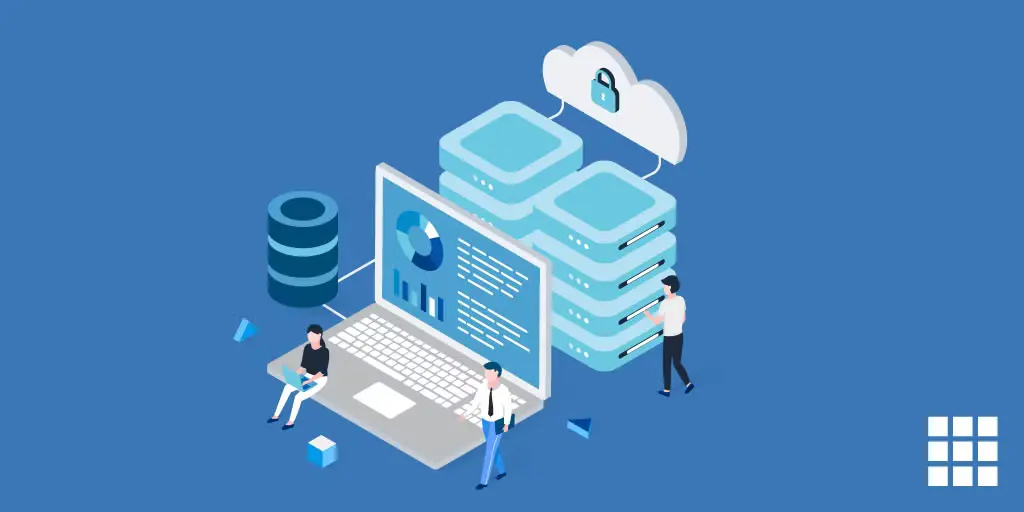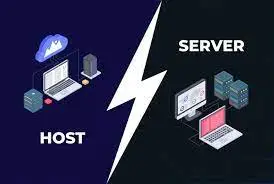What Is Data Hosting?
Data hosting safely stores data on a reliable, easily accessible web platform. The primary objective is to keep a reliable and effective web connection to improve data transfers at all levels. This method requires a long-term commitment to ensure that data is always available and can be efficiently retrieved when needed.
Numerous businesses depend on hosting services for crucial tasks, including database hosting, web hosting for their websites and applications, and supporting countless other systems essential to their operations. Businesses can concentrate on their core competencies while retaining control over the safety, backup, and accessibility of their data by outsourcing hosting requirements to specialized providers.
IT companies and specialized service providers like CouchDeck are essential to data hosting. They devote their experience to hosting services designed to fulfill diverse enterprises’ demands. These companies may run remotely or have actual data centers to meet varying client needs.

Why Do Online Businesses Need Data Hosting?
The amount of data you handle increases considerably as your business expands. This covers internal data, such as files, contracts, and papers, and external data, such as sensitive client, customer, and stakeholder information. As your operations grow, you will be responsible for protecting enormous volumes of crucial data essential to your company.
Effective data management is essential for your company to handle increasing data. You will thus unavoidably discover the necessity for trustworthy data hosting services. These services will be crucial in safely managing and storing your data, allowing you to concentrate on your core business operations while ensuring your important data is secure and always available.
The following points highlight the importance of data hosting for your business:
- Data Hosting for Data Safety
Hosting services can enhance data security, but proper measures are essential. While cloud technology has improved, data loss or hacking risks persist. Backing up data on separate systems is crucial. Hosting services usually keep multiple backups, providing added protection by storing copies off-site.
- Reduced investment
Due to the initial capital requirements, businesses frequently need to improve at investing in external data storage. Data hosting solutions, on the other hand, provide higher returns through effective data management without requiring more IT personnel. With options for dedicated servers or co-location solutions, organizations may quickly and affordably access essential technological resources.
- Cost-Effective Hosting Solutions
A hosting service is more cost-effective than running your server. With flexible payment plans, businesses can avoid significant upfront investments and find the perfect balance between price and functionality with various hosting providers.
- Scalable Hosting for Business Growth
Hosting companies provide the perfect solution for online businesses experiencing growth. They offer flexible services, including expanding disk space, bandwidth, databases, or servers, ensuring smooth website performance at any scale. This enables businesses to focus on growth without worrying about data loss or storage limitations.
After understanding the significance of data hosting for businesses, let’s delve into what business hosting is. Business hosting refers to specialized hosting services designed to cater to the specific needs of companies and organizations. Business hosting providers often offer additional services such as dedicated servers, cloud hosting, and managed services to ensure optimal performance, scalability, and data security for businesses of all sizes.
Various Services Related To Data Hosting Provided Are As Follows:
- Dedicated Servers: Hosting providers provide dedicated servers only assigned to one type of company. This assures improved server performance, security, and resource management.
- Cloud Hosting: A network of servers that offers cloud hosting enables companies to use virtualized resources. Businesses can pay for their resources, providing scalability, flexibility, and cost-effectiveness.
- Security Services: To protect sensitive data, business hosting providers may include services like SSL certificates, firewalls, and intrusion detection. Data security is a top priority for many providers.
- Data Backup and Recovery: Hosting providers frequently offer data backup solutions to shield enterprises from losing data due to hardware malfunctions, mishaps, or online attacks. They provide options for recovering deleted data.
Regarding your business’s data hosting needs, compromise is not an option. Don’t settle for the cheapest option that puts your business at risk. CouchDeck stands out as the epitome of reliability and performance in a sea of web-hosting providers. With CouchDeck, you get a robust and secure hosting platform that ensures your website operates at its full potential, even during peak traffic.
Understanding The Meanings Of ” Host And Server”
Server

A server is a computer system that makes resources, information, services, or programs available across a network to other computers, sometimes called clients. Computers act as servers when they share resources with client machines. Web servers, mail servers, and virtual servers are just a few examples of the different server kinds.
Resources can be provided by one system while being used simultaneously by another. A device can thus serve as both a server and a client simultaneously.
A network server is a potent computer specially made to serve as the hub, providing other computers on the network with access to resources like hardware, printers, and disk space. Various kinds of servers can be effectively optimized to handle a single, focused activity or multitasking.
What Are The Different Types Of Servers?
Servers play a crucial role in modern networks, performing various functions to ensure smooth operations and efficient resource distribution.
Here is a summary of the different types of servers commonly found in networks:
- File Servers: Store and distribute files, allowing multiple clients to access and share data. Centralized file storage facilitates more accessible backup and fault tolerance solutions
- Print Servers: Manage and distribute printing functionality, responding to printing requests from numerous clients. Some printers have built-in print servers, reducing the need for additional computer-based servers.
- Application Servers: Run resource-intensive applications shared by multiple users, eliminating the need for each client to have sufficient resources to run the applications. It also simplifies software installation and maintenance.
- DNS Servers: Resolve names by converting human-readable names into machine-readable IP addresses. The DNS system is a widely distributed database of words and servers, enabling seamless name-to-IP address translation.
- Mail Servers: Receive and store emails for users, allowing a single server to handle email operations for the entire network. This centralized approach streamlines email management.
- Web Servers: Host programs and data users request across the Internet or an intranet. Web servers respond to browser requests for web pages and web-based services.
- Database Servers: Store vast amounts of data and respond to multiple client requests for database access. They are crucial for businesses handling large data volumes.
- Proxy Servers: Act as intermediaries between clients and servers, enhancing security and managing data flow. Proxy servers facilitate isolation for security purposes.
Host

A web host, usually called web hosting, is an online platform that enables people or businesses to publish their web pages or websites. It serves as a virtual repository for website content made available to internet users, including text, photographs, videos, and other types of content. Providers of web hosting services are companies that provide the infrastructure and technologies, such as servers, data centers, and network connectivity, required to make a website available and accessible to users worldwide.
Types Of Host:
- Cloud hosting: Cloud hosting uses numerous remote servers to provide scalability and stability. Suitable for fast-expanding websites, particularly those with over 50,000 monthly page hits.
- Managed Hosting: A type of hosting in which the provider oversees the server’s day-to-day operations, including operating systems and hardware. Typically included with various hosting packages.
- Shared Hosting: Multiple websites share a single server, making it ideal for small businesses and newcomers. It takes little technological knowledge and is inexpensive, with monthly fees ranging from Rs 450 – 850.
- Dedicated Hosting: Renting exclusive access to a web server is appropriate for enterprise-level websites with heavy traffic. The server is wholly owned by the user, with fees ranging from Rs 6000 – 12000 monthly.
- Virtual Private Server (VPS) Hosting: VPS hosting is a hybrid of shared and dedicated hosting in which websites share a server but have dedicated resources. Prices range from Rs 2500 – 7000 monthly, making it ideal for small to medium-sized organizations.
People often need help understanding the difference between host and server and using them interchangeably. The following section discusses the difference between a server and a host.
Server vs Host:

A host is a computer or other device that connects to a network. In contrast, a server is a piece of hardware or software that offers services to other networked computers, apparatus, or programs.
| Host | Server | |
| Definition | A host refers to any computer or device connected to a network. It can be a computer, laptop, smartphone, printer, or any other device with network connectivity | A server is a software or hardware device that provides services to other programs or devices on the network. It responds to requests from client devices (hosts) and delivers the requested data or services. |
| Types | Different hosting options are available, including shared hosting, dedicated hosting, VPS hosting, etc. | Different types of servers are available, including web, application, file, mail, etc. |
| Functionality | It shares and consumes resources | It shares resources and provides services. |
| Connection method | A host can connect to other devices via the Internet | A server can connect via the Local Area Network (LAN) or the Internet. |
Conclusion
Data hosting is crucial for businesses, offering safety, reduced costs, scalability, and essential services like dedicated servers and cloud hosting. Understanding servers versus hosts is key, with servers providing services and hosts connecting to networks. CouchDeck provides comprehensive digital marketing solutions, ensuring businesses thrive online. From SEO to social media marketing, CouchDeck’s expertise fuels growth for clients worldwide. For tailored solutions, contact CouchDeck for a free consultation at [email protected].
There are a few frequently asked questions answered below:
What are data processing and hosting?
Data processing services create customized reports from customer data. Web and application hosting are available. Services include automated data input and processing.
What’s business hosting?
Business Hosting is a web hosting package on a server given to online businesses and e-commerce in all aspects and shared among other business hosting customers. It lets individuals and organizations host their websites online.
What distinguishes a host from the server?
A host is a computer, laptop, tablet, or smartphone that connects to one. A server is a hardware or software that serves other devices. It can also serve networked programs.
CouchDeck is a trusted brand providing comprehensive digital marketing solutions designed to fuel business growth. As specialists in diverse areas such as SEO, Google Ads, Facebook Ads, SEM, Web Development and Hosting, YouTube Marketing, Local SEO, and Social Media Marketing, CouchDeck has an established track record of delivering consistent, impactful results. Serving a clientele of over 300+ satisfied customers across India, United States, Canada, and Australia, We are committed to helping businesses flourish in the digital landscape. For a FREE consultation, please reach out to us via email at [email protected].


